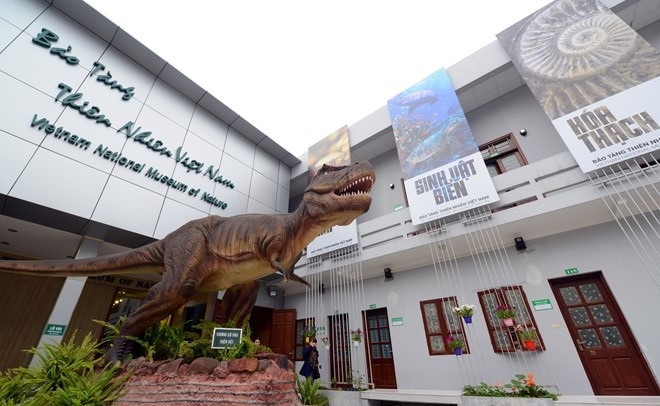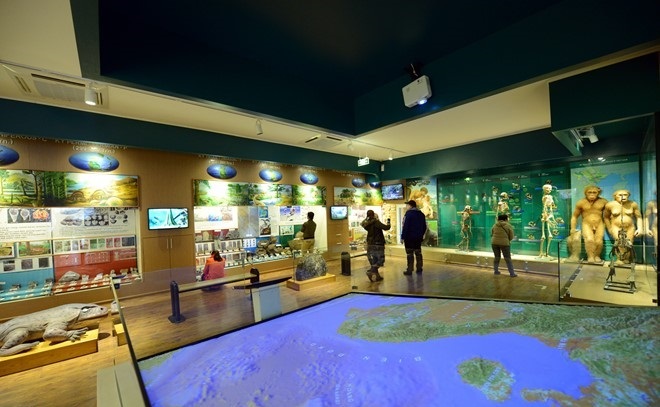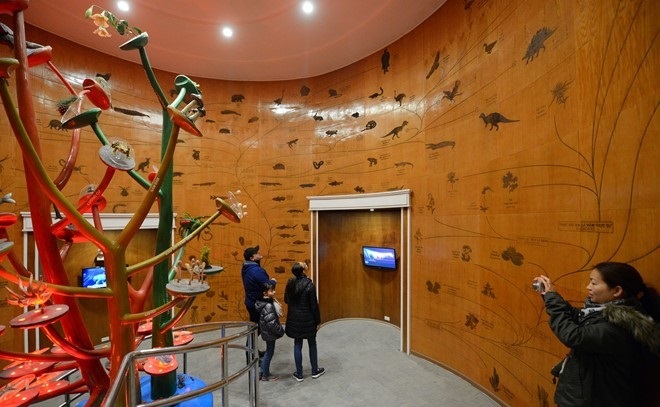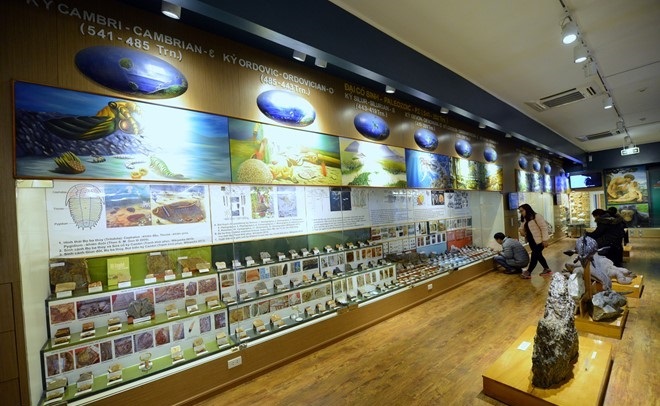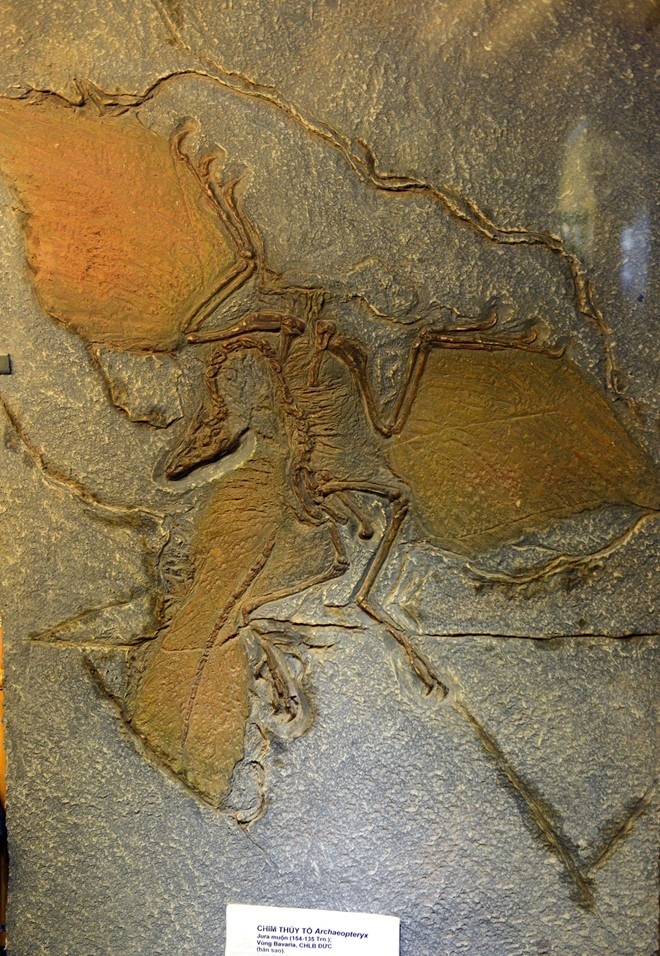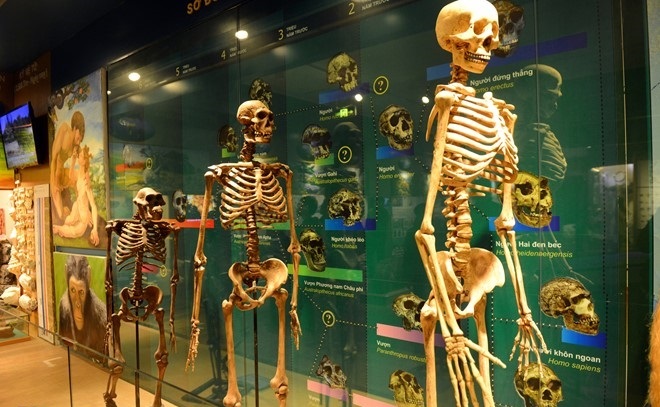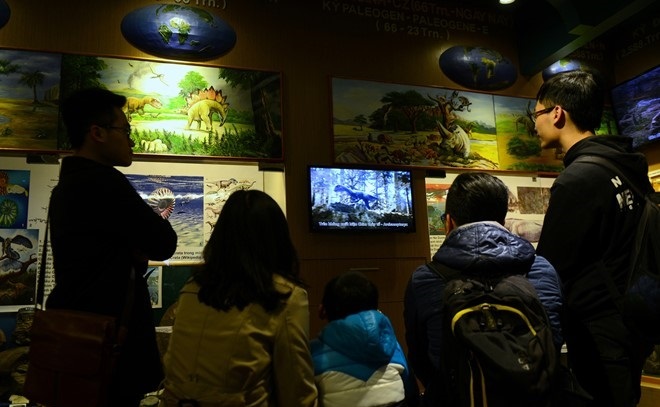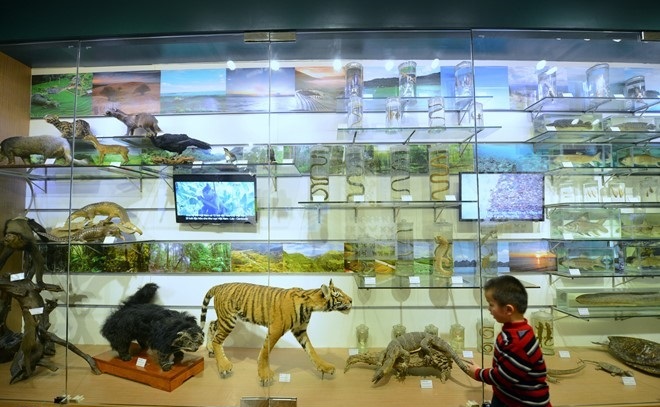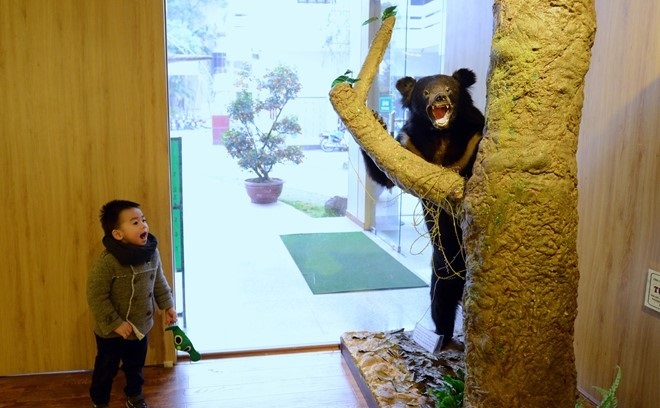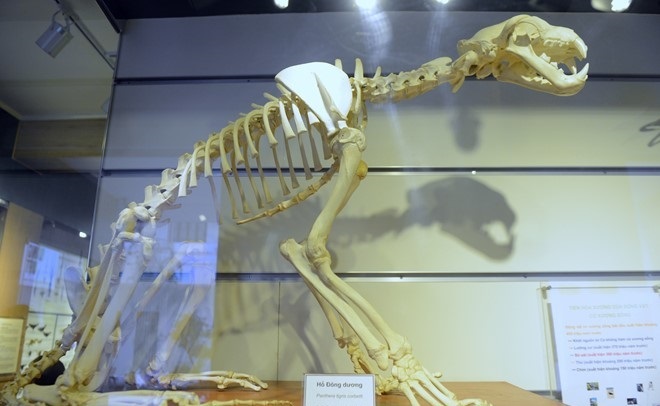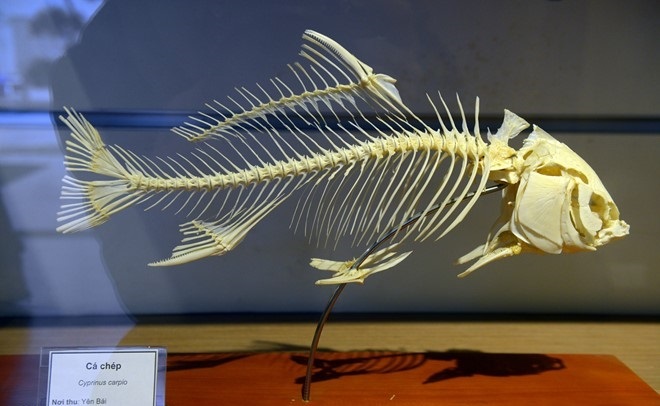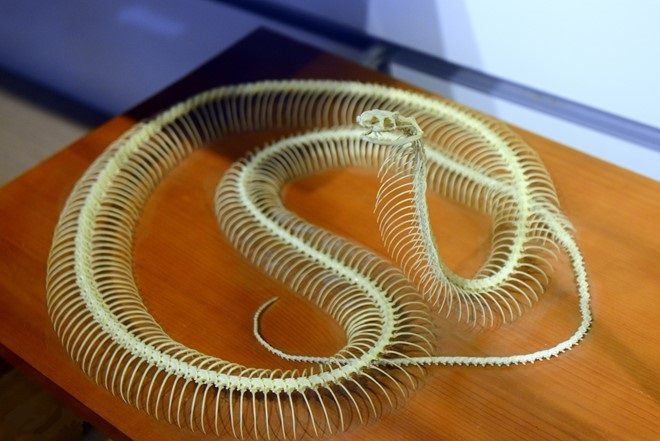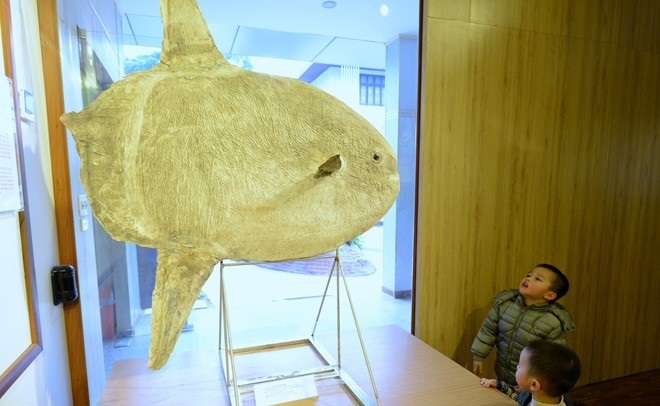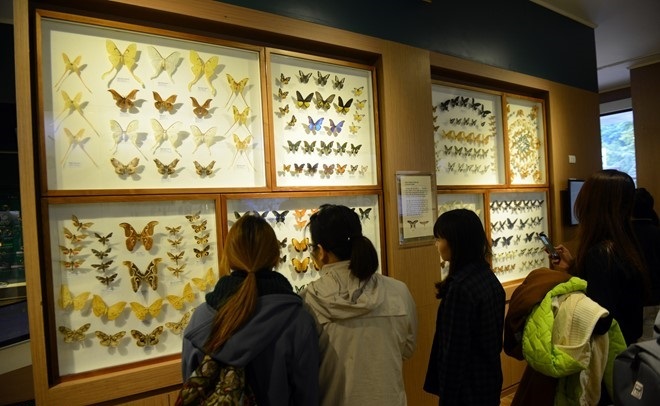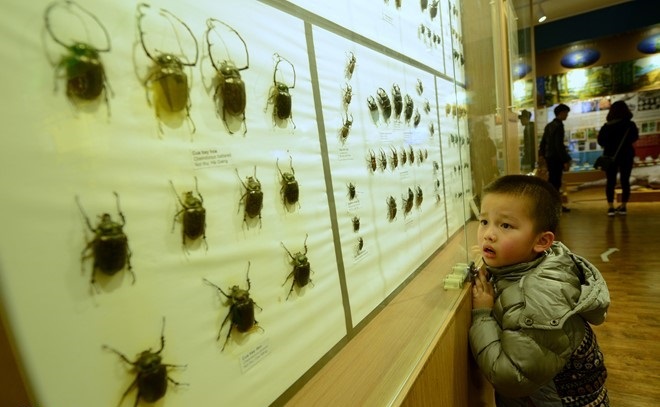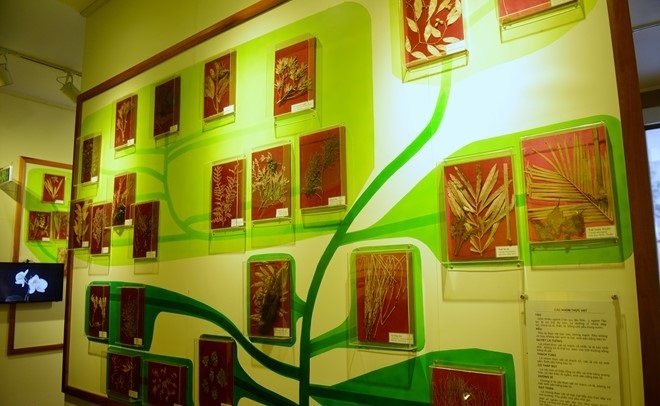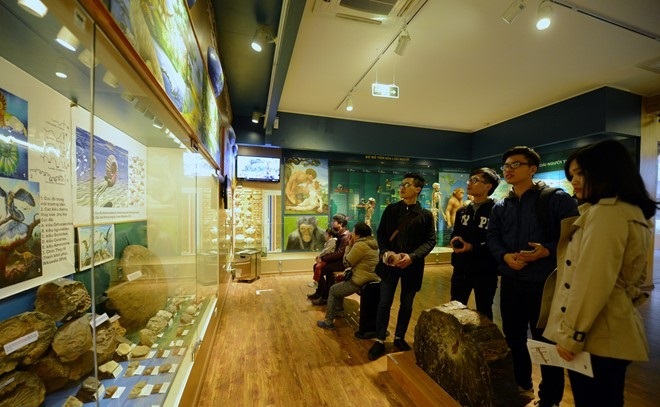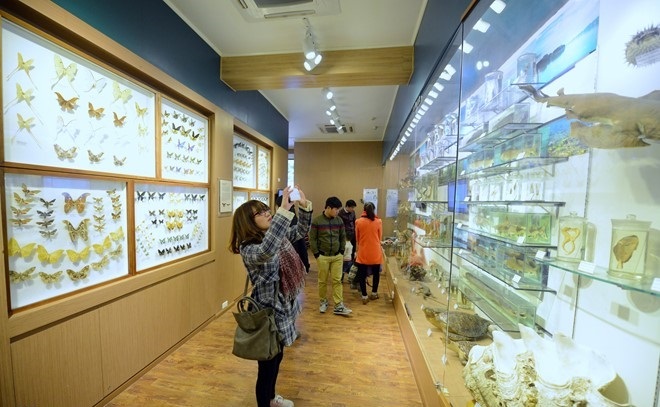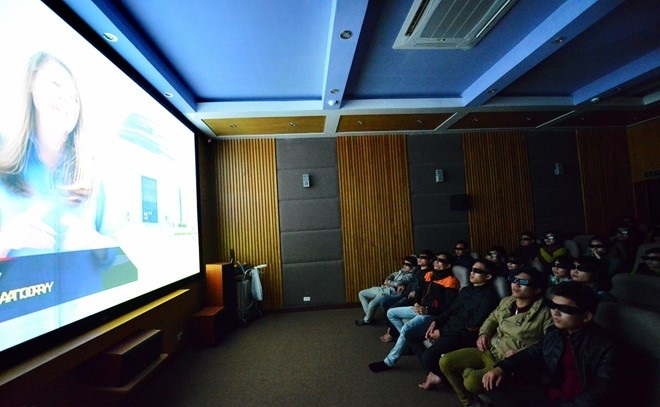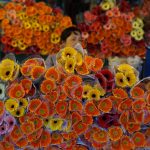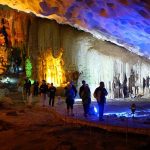Visiting Vietnam National Museum of Nature — The first nature museum in Hanoi, Vietnam
The Vietnam National Museum of Nature displays 1,400 distinct examples demonstrating how life evolved over 3.6 billion years (Cau Giay, Hanoi).
The Museum of Nature is located on the Vietnam Academy of Science and Technology’s campus (No. 18 Hoang Quoc Viet street, Cau Giay district, Hanoi). This is one of Hanoi’s new and contemporary museums, which opened on May 15, 2014.
Nearly 1,400 samples are shown on a modest 300 square kilometers (the entire size of the museum is around 1,000 square kilometers) and nonetheless define the history of life and nature in Vietnam spanning 3.6 billion years.
The evolutionary tree is painted in detail on the wooden wall, depicting the universe of many living species divided into five regnums: monera, protista, fungus, plant, and animal.
The Precambrian Time (4,500 – 541 million years ago), the Paleozoic Era (541 – 252 million years ago), the Mesozoic Era (252 – 66 million years ago), and the Cenozoic Era (4,500 – 541 million years ago) (66 million years ago to today).
Special fossil specimens such as the Archaeopteryx (154 – 135 million years ago, found in Germany) are exhibited at the museum.
Human evolution began with monkeys, then progressed to several Homo species, and eventually to Homo sapiens (the modern humans nowadays). The specimens seen above are Homo habilis, Homo erectus, and Homo sapiens.
Each display section features a slide show that tells visitors about the growth and development of flora and wildlife throughout that time period.
The world of vertebrate animal and marine animal is diverse and rich with the species such as pangolin, lizard, tiger, snake, seahorse, starfish, coral, clam…
Young children get excited with the Indochinese bear specimens.
Vertebrate animal started their evolution about 530 million years ago. In the picture are the bones of an Indochinese tiger collected at Hanoi zoo.
Quite complete skeleton of a carp.
The King Cobra.
A template of pointy-tailed moon fish.
Insects first appeared some 400 million years ago and have a wide range of smells, including lepidopterans, coleopterans, dragonflies, cicadas, orthopterans, and mantises.
Coleopteran exhibit space is the most favorite area to many young kids in the museum.
Exhibit space for plant and fungi.
An ancient specimen of Ganoderma from Ninh Binh.
The museum opens from Thursday to Sunday every week. Tuesday and Wednesday are reserved for the groups which have preregistered.
The museum receives between 200 and 500 visitors each day, depending on the day. The hours of operation are 08:00 AM to 11:30 AM and 01:30 PM to 04:30 PM, with free admission.
3D movie theater has 4 shifts a day with science films about space, marine, dinosaur, insect, fish and human evolution. Each shift only begins when there are 15 visitors or more and they have to register with the museum.
Visit information
- Opening times:
– For visitors: Thursday to Sunday
– For researchers: Tuesday and Wednesday
Morning: 8.30 – 11.30
Afternoon: 3.30 – 16.30 - Free for all visitors
- Sections time 3D:
– 09:00 – 09:40 Ocean Wonderland – 2003
– 10:00 – 10:40 Planer Dinosaur – 2011
– 14:00 – 14:40 Ocean Wonderland – 2003
– 15:00 – 15:40 Planet Dinosaur – 2011
Others information
- Address: No 18, Hoang Quoc Viet, Cau Giay, Hanoi
- Tel: (+84-4) 3756 8328
- Fax: (+84-4) 3756 8328
- Email: vnmn@vnmn.vast.vn
- Website: www.vnmn.ac.vn











